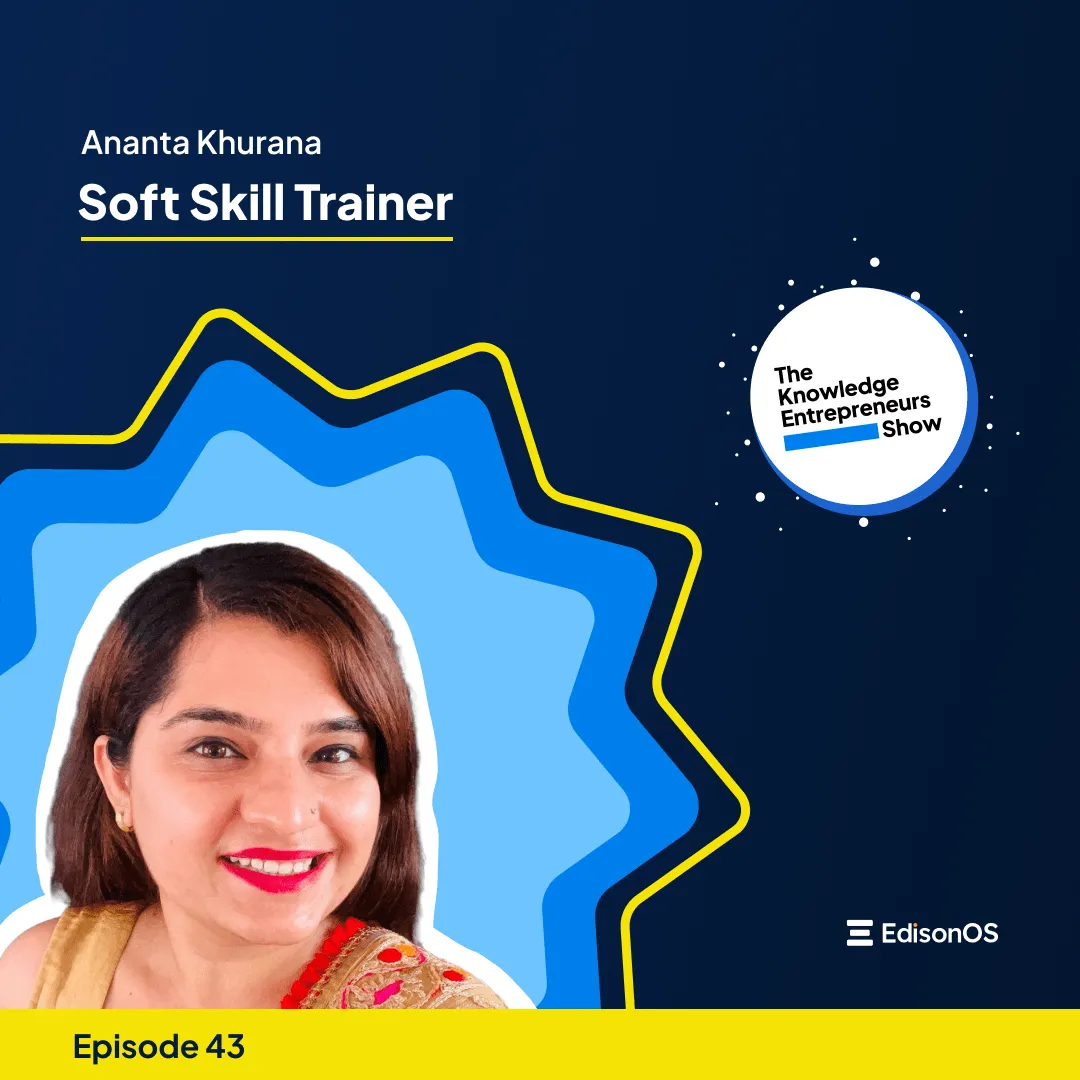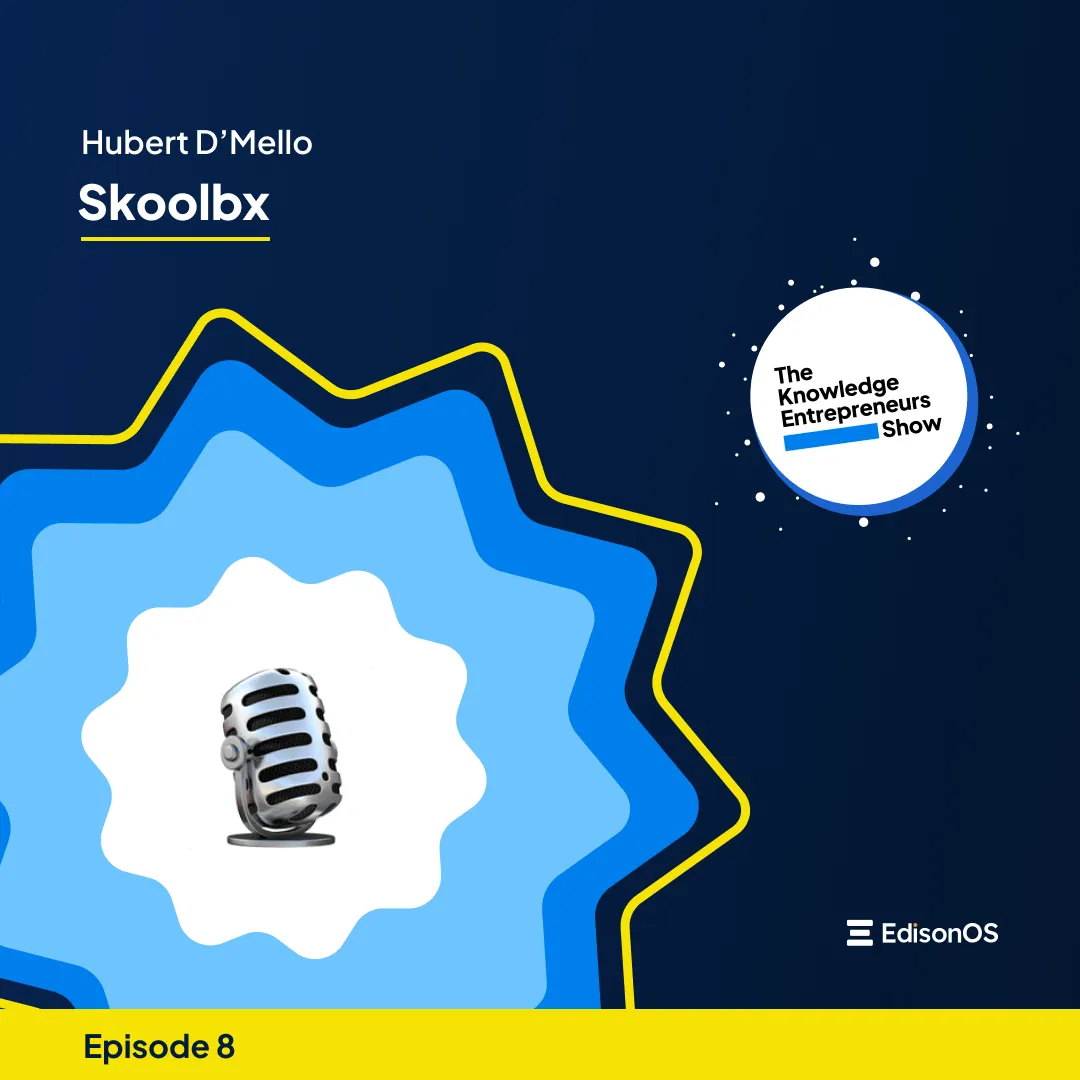

Key Takeaways
- To build a sustainable EdTech startup, understand your target audience and their online purchase behavior at each stage of the customer journey.
- A well-structured product funnel — from free awareness products to premium offerings — is key to gaining trust and converting leads into loyal customers.
- Focus on continuous product improvement, customer feedback, and strategic pricing to maintain growth and profitability in a competitive EdTech market.
Introduction
An edtech startup is a company that utilises technology to deliver innovative and effective learning solutions. A sustainable and successful edtech startup is one that can achieve its goals and grow over time, while also having a positive impact on education and society. Such startups are not only profitable, but also create value for their users, employees, and the wider community.
Building a sustainable edtech startup is important for several reasons. Firstly, edtech has the potential to transform education and improve learning outcomes for students worldwide. By leveraging the power of technology, edtech startups can create personalised and engaging learning experiences, enable remote and flexible learning, and provide access to education for underprivileged communities. Secondly, the edtech industry is growing rapidly, with a projected market size of $288.4 billion by 2031, according to Future Market Insights. Sustainable edtech startups are well-positioned to capitalise on this growth and gain market share. Finally, edtech has the potential to contribute to global sustainable development goals, such as ensuring inclusive and quality education for all and promoting lifelong learning opportunities.
In this blog, we will explore how to build a sustainable edtech startup by mapping the online purchase behaviour funnel to the product structure and customer journey of your business along with a case study.
How to build a sustainable EdTech startup
There is no doubt that you need to have the conventional blueprint to establish your EdTech startup. But how do you ensure that profits are still filling your pockets? How to make your online teaching business sustainable and successful?
To build a sustainable and profitable EdTech startup, it is essential to stay ahead of the competition by understanding the market and customers. The EdTech industry is highly competitive, especially with the recent surge in online education. Therefore, having a clear understanding of your product, its structure, your target customers and their journey is crucial.
But before we dive into product structuring customer journey, one of the most important factors to consider is understanding the online purchasing behaviour of your target customers. It is crucial to have a strong online presence and make sure that your product is easily discoverable on various online channels.
Let’s take a look at the online purchase behaviour in detail.
Understanding the Online Purchase Behaviour
To understand the online purchasing behaviour of customers we need to understand the flow in which a customer will associate with a brand.

Stage 1: Know
In today's online world, the customer's perspective towards buying a product online is very different from the offline world. Before making a purchase, customers would like to know you as a brand or would like to be aware of your brand’s existence. Your brand needs to have an online presence before the customer can interact with your brand further.
Stage 2: Trust
Building trust with customers is crucial for any online business, and this can be achieved by providing digital validation through various channels. Customers often research businesses online through channels such as online reviews, social media content, product reviews, testimonials, promotional videos, and articles. Therefore, it's important to have a strong online presence and provide high-quality content on these channels to build trust with potential customers.
By consistently delivering valuable and informative content, you can establish your brand as a reliable and trustworthy source. This can lead to increased customer loyalty, positive reviews, and ultimately, more sales. Don't underestimate the power of digital validation in building trust with your customers - it can make all the difference in the success of your online business.
Stage 3: Try
Even after customers have become familiar with and built trust in your brand, they may still hesitate to make a big purchase. To convince them to take the plunge, it's important to offer them an opportunity to try your products or services at a minimal cost.
By providing a low-priced trial offer or a basic purchase option, such as ₹499 or ₹599, you can allow customers to experience the quality of your product or service and see what your brand has to offer without breaking the bank. This can help them to gain confidence in your brand and make a more informed decision when it comes to larger purchases.
It's essential to prioritise customer satisfaction during this stage, as a negative experience with your product or service can lead to lost trust and potential damage to your brand's reputation. Make sure that the trial offer or basic purchase option provides real value to the customer and demonstrates the quality of your brand.
By offering a low-risk, high-reward option to potential customers, you can help to build a loyal customer base and increase the chances of making more significant sales in the future.
Stage 4: Buy
Once customers have had the opportunity to experience your product and have developed a sense of trust in your brand, they are more likely to make larger purchases without hesitation. By offering a low-risk, high-reward option such as a low-priced trial or a basic purchase option, you can demonstrate the value of your brand and build a relationship with potential customers.
As customers become more familiar with your product, they can make a more informed purchase decision. This can lead to increased sales of higher-priced products, as customers feel confident in the quality of your brand and the value that it provides.
It's important to continue prioritising customer satisfaction at this stage as well. Ensure that your products and services meet or exceed customer expectations, and be responsive to any feedback or concerns that they may have. This can help to build long-term customer loyalty and generate positive reviews and referrals.
Now that the online purchase behaviour of a customer is clear, it is time to see how to accommodate a lead generation acquisition funnel with the online purchase behaviour.
Lead generation-acquisition funnel
The lead generation-acquisition funnel is a systematic way to generate leads. This funnel perfectly accommodates the purchase behaviour of a customer in the online world. Let’s look at the different stages of the funnel with respect to EdTech.

Stage 1: Hook on awareness
The awareness stage is arguably the most important stage in marketing as it sets the foundation for creating a strong brand presence. In this stage, it's essential to grab the attention of potential customers and introduce them to your brand. To achieve this, you can use various hooks such as offering free products or services, creating compelling content, or leveraging social media platforms.
As an EdTech entrepreneur, providing free products or services can be an effective way to create awareness and generate demand for your products. By offering a valuable resource at no cost, you can entice potential customers to engage with your brand and ultimately increase demand for your paid products or services.
Stage 2: Build trust
Building trust with your audience or potential customers is crucial for the success of any business. In today's digital age, apart from online reviews, content or testimonials, providing your audience with a hands-on experience of your services can be an effective way to build trust and confidence in your brand.
As an EdTech entrepreneur, offering a crash course can be an excellent way to give your audience a taste of what your brand has to offer. This not only provides your audience with valuable knowledge and insights but also helps them to better understand your teaching style and the quality of your services. By demonstrating your expertise and commitment to education, you can instil trust in your audience and position yourself as a reputable brand in the industry.
Stage 3: Understanding purchase behaviour
Understanding the purchase behaviour of your customers is essential to creating a positive customer experience and building brand loyalty. By analysing how your customers are interacting with your products, you can identify areas for improvement and develop strategies to increase customer satisfaction and sales. This stage also lets your audience gauge the long term experience they will have with your brand.
In the EdTech industry, offering your best selling product as a mini course or hybrid course can be an effective way to understand and cater to your customers' purchasing behaviour. A mini course can provide customers with a taste of your best selling product, allowing them to experience the value it offers before committing to a larger purchase. This not only increases the likelihood of customers making a purchase but also helps to build trust and loyalty towards your brand.
Additionally, offering a hybrid course that combines online learning with in-person instruction can provide customers with a more personalised and engaging learning experience. By catering to the different learning styles and preferences of your customers, you can enhance the value of your product and increase customer satisfaction.
Stage 4: Qualified to sell
Understanding the purchase behaviour of your customers is an important part of lead generation and can help you determine if a customer is qualified to purchase your highest value product. By analysing the data collected during the lead generation process, you can gauge a customer's level of interest and engagement with your brand, and determine whether they are ready to make a purchase. Your highest value product could be a live cohort class, which offers a more personalised and interactive learning experience for customers. This is the final stage of your lead generation acquisition funnel.
How is Physics Wallah the only profitable EdTech unicorn
Physics Wallah is a well-known EdTech brand that has achieved unicorn status and sustained profitability in a highly competitive market. The success of Physics Wallah can be attributed to its unique approach to product structuring and customer journey. Founder Alakh Pandey recognized the importance of understanding online purchase behaviour and structured the company's products to meet the various stages of the sales funnel.
By analysing customer behaviour, Physics Wallah was able to design its products to meet the needs and preferences of its target audience. The company offers a range of courses, from free introductory classes to comprehensive paid courses, catering to customers at different stages of their learning journey. This approach not only attracts new customers but also encourages them to progress through the sales funnel towards higher-value products.
Physics Wallah places a strong emphasis on customer journey, providing a seamless and personalised experience for each customer. By analysing customer behaviour and designing its products to meet the needs and preferences of its target audience, the company has been able to attract and retain customers, while remaining profitable and sustainable.
Let’s take a look below on how Physics Wallah has structured their products and mapped the customer journey:

Stage 1: Demand generation product
Physics Wallah has been successful in generating demand and attracting a large number of leads with their PWSAT product. This free mock test product not only provides valuable educational content but also offers scholarship opportunities and serves as an admissions test for students.
By offering this product, Physics Wallah has created a sense of demand among potential customers, encouraging them to engage with the brand and explore its offerings. The PWSAT product also serves as a powerful lead generation tool, attracting a large number of interested students who may be inclined to purchase higher-value products or services from the company in the future.
Furthermore, by offering scholarship opportunities and serving as an admissions test, the PWSAT product provides additional value to students, further increasing its appeal and potential for lead generation.
PWSAT product is a prime example of effective demand generation in the EdTech industry.
Stage 2: Trust builder product
Physics Wallah has successfully built trust with its audience by offering its Drona JEE course for class 12th students preparing for the JEE competitive examination. The course is specifically designed to cater to JEE Mains and Advanced exams and is available for free, providing potential customers with a high-value product at no cost.
By offering this free course, Physics Wallah is able to showcase the quality of its educational content and expertise in the field, thereby building trust and credibility with its audience. This can also lead to increased customer loyalty and word-of-mouth marketing as satisfied customers may recommend the brand to others.
The Drona JEE course offers a personalised and comprehensive learning experience, further enhancing the trust-building aspect of the product. By tailoring the course to the needs and preferences of its target audience, Physics Wallah demonstrates its commitment to providing valuable educational content that meets the needs of its customers.
The Drona JEE course is an excellent example of a trust-building product in the EdTech industry, providing high-value content for free and showcasing the brand's expertise and commitment to its customers.
Stage 3: Best seller product
Physics Wallah's best-selling product, Lakshya JEE 2.0, is a curated version of their highest value product. While it contains fewer lecture numbers, it still offers comprehensive content at a reasonable price of ₹1800. By offering this product, Physics Wallah is able to attract potential customers who are serious about their JEE preparation and have the spending power to invest in their education.
By analysing the sales data and behaviour of customers who purchase Lakshya JEE 2.0, Physics Wallah is able to qualify these customers as leads who may be interested in their highest value product, such as a live cohort class. This allows them to target their marketing efforts more effectively and increase their chances of converting leads into paying customers.
Lakshya JEE 2.0 is an effective product for both lead generation and qualification, providing potential customers with valuable educational content at a reasonable price while also enabling Physics Wallah to identify and target qualified leads for their highest value product.
Stage 4: Highest value product
Physics Wallah's highest value product is their Lakshya for JEE 2024, which is a comprehensive course designed to prepare students for the JEE competitive examination. Priced at a discounted value of ₹4199, the course includes live sessions, tests, doubt-solving, and other valuable resources to help students succeed.
With Lakshya for JEE 2024, Physics Wallah provides students with a high-quality and interactive learning experience that can greatly enhance their chances of success on the JEE exam. This product is a testament to their commitment to providing value to their customers and helping them achieve their academic goals.
By offering this product, Physics Wallah is able to differentiate themselves from their competitors and establish themselves as a leader in the EdTech industry. Moreover, the success of Lakshya for JEE 2024 is a testament to their ability to understand the needs and demands of their customers and provide them with a product that meets their expectations.
Physics Wallah has effectively mastered the customer journey funnel by creating products that cater to the needs of customers at different stages of their journey. This has allowed them to stand out in the highly competitive space of EdTech. Unlike other brands that typically only offer an entry-level product and a highest value product, Physics Wallah has mapped out a range of products that provide value to the customer at each stage of the funnel. By doing so, they have effectively addressed the journey of the customer, which has helped them stay ahead of the competition. Each product is tailored to meet the customer's specific needs, which creates a sense of demand and also provokes the customer to learn more about what Physics Wallah has to offer. This strategic approach has been instrumental in creating a need in the customer and ensuring that they have the best tutoring experience for their competitive examinations.
Conclusion
In conclusion, building a successful and sustainable EdTech startup requires a deep understanding of the customer journey and the ability to provide value at every stage of the funnel. It's important to create demand generation products to attract leads, trust builder products to build a relationship with potential customers, best seller products to qualify leads, and a highest value product to convert leads into paying customers. It's also crucial to focus on product structuring, pricing strategies, and customer feedback to continuously improve the product and ensure customer satisfaction. Additionally, maintaining profitability and sustainability is key to the long-term success of an EdTech startup. By following these principles and strategies, EdTech entrepreneurs can create a successful and sustainable business in the competitive and ever-evolving world of online education.

Recommended Reads
Podcasts















.webp)
